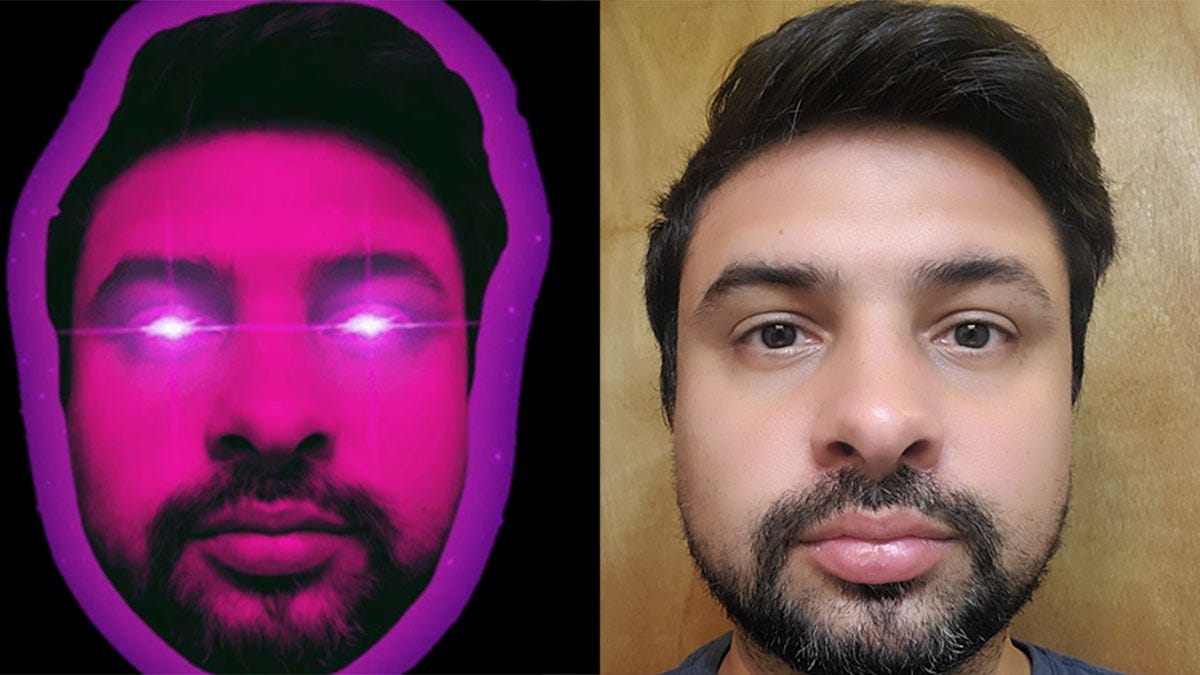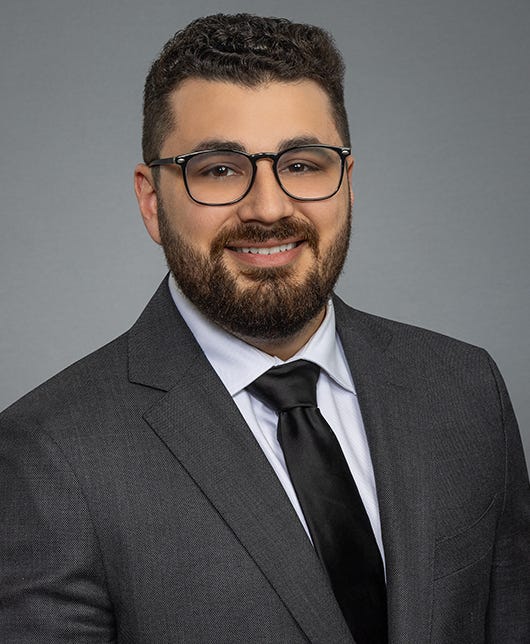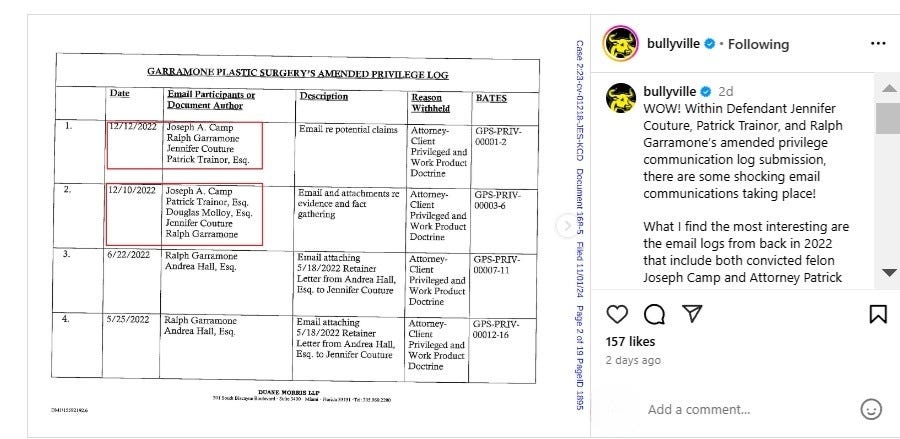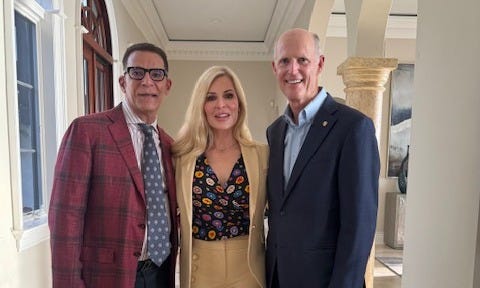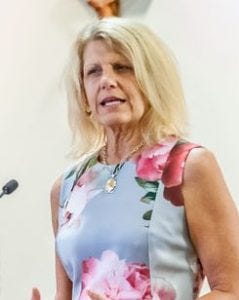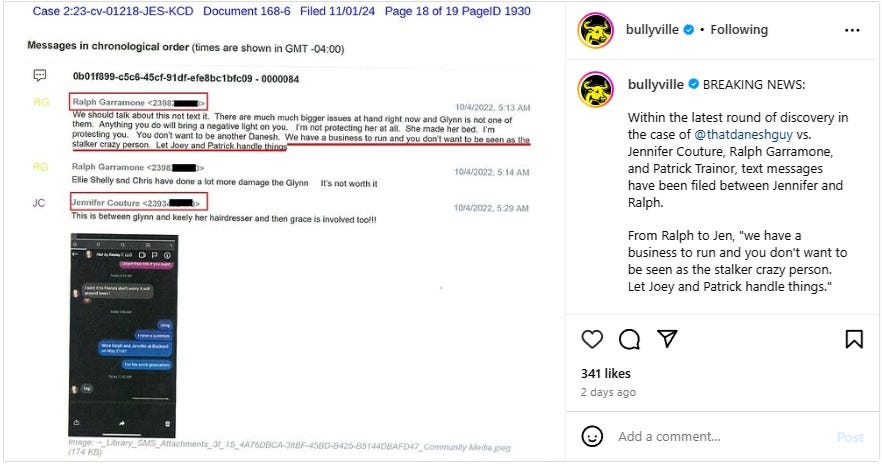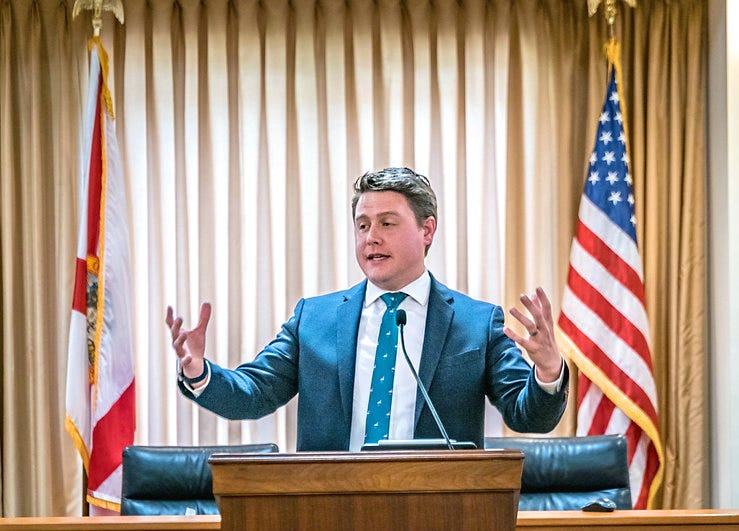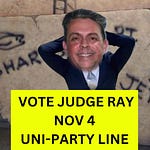By Richard Luthmann
NOTE: This outlet has been retained by a private party to investigate, newsgather, and publish on Social Media, Cancel Culture, and related matters. A potential documentary may ensue. We will explore emerging Internet issues, including “doxxing,” the act of publicly providing personally identifiable information about an individual or organization, usually via the Internet and without their consent. We will also explore the limits of the First Amendment, the available court recourse, and Cancel Culture generally.
Florida-based defense firm Wicker Smith recently withdrew from a high-stakes case involving TikTok influencer Danesh Noshirvan (@ThatDaneshGuy), also known as the “SCOTUS Doxxer.” Two related lawsuits pending in Fort Myers federal court are now a public spectacle of digital harassment and litigation. They pit Noshirvan against plastic surgeon Dr. Ralph Garramone and his wife, Jennifer Couture, in what has become a “Wild West” showdown on the wide-open legal frontiers of Doxxing, Cancel Culture, and the Internet.
This case underscores growing concerns over social media's unchecked power and perceptions about the courts’ authority to manage private legal matters effectively in the digital age.
The ongoing battle began with allegations from Garramone and Couture that Noshirvan targeted them with online harassment, spreading damaging information about them to his millions of followers and sparking waves of negative online reviews. The “Cancel Culture Mob” pounced. The impact devastated Fort Myers residents’ personal and professional lives.
Noshirvan, infamous for doxxing U.S. Supreme Court justices following the decision overturning Roe v. Wade, commands a substantial online following mainly on TikTok. He has used his platform “to mobilize” followers for “social justice” issues. In response to Norshirvan’s social media campaign against them, Garramone and Couture filed a lawsuit.
With law firm Wicker Smith’s recent departure, Garramone and Couture must fill a void in their legal team.
Wicker Smith Backs Out After Court Denies Protective Order
Wicker Smith attorneys James R. Brown and Sonny G. Romano withdrew from the case after the U.S. District Court for the Middle District of Florida denied a request to impose a confidentiality order on sensitive discovery materials.
The litigation is presided over by Judges Sheri Polster Chappell, John Steele, and Magistrate Judge Kyle Dudek.
According to sources, the law firm, whose fees were funded by a Cincinnati Insurance Company business insurance policy, saw the case as “high-risk.” These risks became especially acute without a protective order to shield discovery documents from immediate public view and the history of their litigation rival: SCOTUS Doxxer Danesh Noshirvan.
The absence of a protective order means that any materials filed with the court could become public without judicial review—a prospect Garramone and Couture argue has already emboldened Noshirvan to use irrelevant and salacious discovery materials as content to “rile up” his social media “Cancel Culture Mob” of over 2 million followers.
SCOTUS Doxxer Danesh Noshirvan is aided by James McGibney (@bullyville), another internet personality known for his involvement in online activism. McGibney has a history of engaging in high-profile social media disputes and is an ally and "spiritual advisor" to Danesh Noshirvan, particularly in campaigns involving doxxing and digital advocacy.
Sources close to the case suggest that Wicker Smith attorneys, accustomed to representing clients under strict confidentiality, were wary of becoming the next targets of Noshirvan’s online mob, especially at the limited “bulk defense attorney rates” paid by Cincinnati Insurance Company.
“Who would want to risk their names and faces or children’s school addresses ending up online, especially for what they’re being paid?” an inside source said. “The Court’s refusal to protect the flow of non-relevant and potentially embarrassing information may have led them to walk away. No one wants to be anywhere near that.”
We requested detailed comments from Wicker Smith. We received no response as of press time.
The “Cancel Culture” Tactics of a SCOTUS Doxxer
At the core of this case is Noshirvan’s history of digital vigilantism. He gained notoriety after allegedly doxxing U.S. Supreme Court justices and sharing their personal information following the Dobbs decision that overturned Roe v. Wade. Critics argue that his vast social media reach gives him a disproportionate influence advantage over individuals like Garramone and Couture, citizens who have neither the same platform nor the same security protections as high-profile public officials.
Dr. Garramone claims that each social media post by Noshirvan or McGibney—whom Noshirvan has previously described as his “spiritual advisor”—sparks adverse effects upon his practice.
“Every time Danesh or his close ally, James McGibney, posts about us, we see a surge of negative business reviews and cancellations on our social media pages,” Garramone explained.
Noshirvan’s lawyer, Nick Chiappetta, has repeatedly denied these accusations, claiming that his client’s activities are protected by free speech. However, Couture and Garramone’s lawyer, Partick Trainor, says the SCOTUS doxxer’s actions go far beyond legal expression.
“Danesh’s business model is to incite fear and embarrassment,” Attorney Trainor said. “Not many want the exposure, and few private persons have the wherewithal to fight fire with fire.”
The Court’s Struggle to Maintain Control
The refusal to impose a confidentiality order has exposed Garramone and Couture, their current legal team, and potentially their next legal representatives to public scrutiny. In the absence of protective boundaries, private discovery materials have allegedly made their way into McGibney’s social media feeds, where they fuel targeted harassment of Garramone and Couture.
“It’s no coincidence,” Attorney Trainor said. “Danesh is running a harassment campaign under the guise of free speech, using private information obtained in legal proceedings to do it.”
The Fort Myers federal court’s refusal to impose restrictions has also blurred the line between what is relevant to the legal process and what is merely inflammatory fodder for social media.
Legal analysts argue that by leaving discovery materials unprotected, given the brazen SCOTUS doxxer’s history and most recent activity, the U.S. District Court has essentially handed Noshirvan and his followers the power. They will determine the narrative and public opinion, undermining the court’s role in administering justice.
“This case illustrates what happens when social media bypasses the courts to become judge, jury, and executioner,” said one legal expert. “Without a confidentiality order, the court has effectively allowed [SCOTUS doxxer Danesh Noshirvan] to hijack the judicial process and try the case in his personal ‘court of public opinion.’“
McGibney and Noshirvan’s “Special Relationship”
Garramone and Couture have previously alleged that McGibney, a known online personality with a reported history of collaborating with Noshirvan, is a close ally actively amplifying SCOTUS doxxer Danesh Noshirvan’s campaign against them.
Garramone claims that the correlation between McGibney’s posts and hostile online activity aimed at his practice is deliberate and damaging, calling it a “pattern designed to tarnish our business and reputation.”
In previous litigation, Noshirvan described McGibney as his “spiritual advisor.” The SCOTUS doxxer even asserted evidentiary privilege over their communications in earlier litigation in an attempt to circumvent and delay discovery obligations.
The Fort Myers couple’s attorney has argued that this “special” and “fiduciary” relationship is being leveraged to violate their privacy and ignore Court Rules.
“There’s no coincidence here,” Attorney Trainor stated. “Every post McGibney makes is coordinated harassment that hurts their business and reputations further.”
An Urgent Call for Judicial Action and Reform
With Wicker Smith’s exit, Garramone and Couture now face the challenge of finding new legal representation willing to confront the online fallout created by SCOTUS doxxer Danesh Noshirvan’s influence. The case has sparked debate on the judiciary’s willingness and ability to protect private citizens from audacious social media attacks while parties are locked in contentious litigation. It has become a rallying point for those who believe that the courts must step up in the face of digital vigilantism by the parties before it.
“The brazenness is troubling,” Attorney Trainor said. “[Garramone and Couture] not public figures, yet they and all figures involved, including the federal judiciary, are exposed to the same kinds of attacks Danesh orchestrated against the U.S. Supreme Court Justices. Part of the blame lies on his attorney for not controlling his client. It’s almost as if he’s encouraging it.”
As they search for a replacement legal team member, Garramone and Couture remain committed to seeking court redress.
“We trust that the legal process will protect private citizens like us, not allow more harm,” Garramone said. “Danesh’s Cancel Culture Mob tactics shouldn’t be running the show.”
To date, Judge Polster-Chappell, Judge Steele, and Magistrate Judge Dudek’s decisions have further exposed Garramone and Couture to SCOTUS doxxer Danesh Noshirvan’s Cancel Culture Mob, further igniting the debate over whether traditional legal processes are still effective in an era dominated by the unchecked power of digital influencers.
The case may serve as a cautionary tale for what can happen when courts fail to provide adequate boundaries for private discovery materials in the age of social media.




